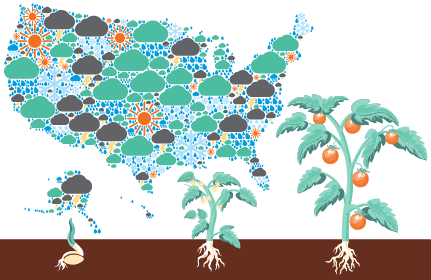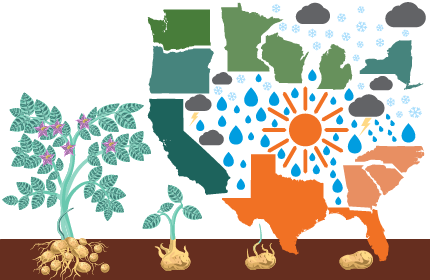US Fruit & Vegetable Supply Chains: Climate Adaptation & Mitigation Opportunities
-
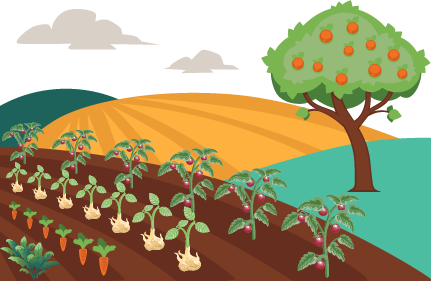
March 8, 2022-March 22, 2022
11:30 am - 1:00 pm(Virtual)
Washington, DC, USA
This webinar series was based on a collaborative research study that seeks to identify and test climate adaptation and mitigation strategies in fruit and vegetable (F&V) supply chains. The project is jointly managed by investigators at the University of Florida and Agriculture & Food Systems Institute, in close collaboration with researchers at the University of Arkansas, University of Illinois, International Food Policy Research Institute, World Agricultural Economic and Environmental Services, and Washington State University.
The event aimed to present the project’s findings in a way that is immediately actionable for the many stakeholders who are involved, both directly and indirectly, in US supply chains for these essential foods. Participants learned about the remarkable resilience in these supply chains, surprising opportunities for certain food preparation methods to significantly reduce carbon footprints, and the massive role consumer waste plays in overall environmental impact. Speakers also delivered presentations on how the project’s unique, integrated approach has helped the team tackle a broad range of other fundamental questions about future food supply chains.
The project “Fruit and Vegetable Supply Chains: Climate Adaptation and Mitigation Opportunities” is funded by a $3 million, five-year grant from the United States Department of Agriculture National Institute of Food and Agriculture (USDA NIFA), awarded in 2017 (USDA NIFA Award: 2017-68002-26789).

Overview
Background
Americans are encouraged to eat more fruits and vegetables as part of a healthy, balanced diet. However, meeting increased demand for these highly nutritious foods will be challenging for domestic production regions in the United States. Supply chains are undergoing significant innovation and transformation as a result of multiple drivers including:
- Consumer preference for fresh, locally grown produce
- Climate change and increased competition for natural resources
- Cost and availability of labor
- Efforts to improve sustainability profiles
- The rise of protected and peri-urban production
Through the development of novel integrated modeling methods, the project has identified and tested adaptation and mitigation opportunities for fruit and vegetable crops, with the overarching goal of enhancing the productivity, resilience, and sustainability of domestic produce supply chains. This includes where production regions might shift, as well opportunities to mitigate the overall climate impacts of these supply chains. Crop, economic, environmental, and life cycle assessment modeling have been used to determine current and future climate impacts on yield, price, and environmental profile of the following eight fruit and vegetable crops:
|
|
|
About the Webinar Series
The primary aim of the webinar series is to present the project findings in a way that is immediately actionable for the many stakeholders who are involved, both directly and indirectly, in US supply chains for these essential foods. Direct supply chain participants include growers, processors, and retailers, and those indirectly involved include nutritionists, experts engaged in food system sustainability issues, developers of new fruit and vegetable varieties, researchers, educators, and extension personnel. Participants will learn about the remarkable resilience in the investigated supply chains, surprising opportunities for certain food preparation methods to significantly reduce carbon footprints, and the massive role that consumer waste plays in their overall environmental impact. They will also hear how this unique, integrated approach has helped the team tackle a broad range of other fundamental questions about future food supply chains, including:
- How will climate change impact future crop yields and prices?
- Will crop production move to new regions?
- How will grower profitability be impacted?
- How will environmental footprints change and what are the biggest opportunities to reduce future environmental impacts?
Three 90-minute sessions will be held on consecutive Tuesdays in March 2022, each starting at 11:30 am EDT. After hearing from the three experts presenting on each day, participants will have the opportunity to ask questions during a 30-minute moderated panel discussion. Registration is required, but there is no cost to attend. Registering once will allow participation in all three sessions, but registrants need not attend all three and are free to join whichever day or days they prefer.
Video Recording & Agenda - Day 1
March 8, 2022 | 11:30-13:00 EDT
| Time | Topic | Speaker/Moderator | |
| 11:30 am | Welcome & Introduction | Dr. Rachel Melnick Senior Manager – Scientific Programs, Agriculture & Food Systems Institute |
|
| 11:35 am | Overview of the Project “US F&V Supply Chains: Climate Adaptation & Mitigation Opportunities” | Dr. Dave Gustafson Agriculture & Food Systems Institute |
|
| 11:45 am | Crop Modeling of F&V Supply Chains | Dr. Claudio Stöckle Professor of Biological Systems Engineering, Washington State University |
|
| 12:00 pm | Economic Modeling of F&V Supply Chains | Dr. John Kruse Principal and Co-founder, World Agricultural Economic and Environmental Services, LLC |
|
| 12:15 pm | Key Project Findings | Dr. Dave Gustafson Agriculture & Food Systems Institute |
|
| 12:30 pm | Moderated Panel Discussion and Q&A | Dr. Rachel Melnick (moderator) Senior Manager – Scientific Programs, Agriculture & Food Systems Institute |
Video Recording & Agenda - Day 2
March 15, 2022 | 11:30-13:00 EDT
| Time | Topic | Speaker/Moderator | |
| 11:30 am | Welcome & Introduction | Dr. Rachel Melnick Senior Manager – Scientific Programs, Agriculture & Food Systems Institute |
|
| 11:35 am | Introduction to Life Cycle Assessment (LCA) Modeling | Dr. Greg Thoma Professor, Bates Teaching Endowed Professorship in Chemical Engineering, University of Arkansas |
|
| 11:45 am | LCA Modeling Methods and Results for F&V Supply Chains | Dr. Ranjun Parajuli Research Associate, University of Arkansas |
|
| 12:00 pm | Mitigation Opportunities in F&V Supply Chains | Dr. Greg Thoma Professor, Bates Teaching Endowed Professorship in Chemical Engineering, University of Arkansas |
|
| 12:15 pm | Carbon Market Opportunities in F&V Supply Chains | Dr. Dave Gustafson Agriculture & Food Systems Institute |
|
| 12:30 pm | Moderated Panel Discussion and Q&A | Dr. Rachel Melnick (moderator) Senior Manager – Scientific Programs, Agriculture & Food Systems Institute |
Video Recording & Agenda - Day 3
March 22, 2022 | 11:30-13:00 EDT
| Time | Topic | Speaker/Moderator | |
| 11:30 am | Welcome & Introduction | Dr. Rachel Melnick Senior Manager – Scientific Programs, Agriculture & Food Systems Institute |
|
| 11:35 am | Implications of Climate Change for F&V Supply Chains in the Southeast | Dr. Clyde Fraisse Professor – Agrometeorology, University of Florida |
|
| 11:45 am | Implications of Climate Change for F&V Supply Chains in the Pacific Northwest | Mr. Chad Kruger Director of Wenatchee Fruit Research & Extension Center and Center for Sustaining Agriculture and Natural Resources, Washington State University |
|
| 11:55 am | Introduction and Demonstration of Decision Support Tools | Dr. Kirti Rajagopalan Assistant Professor – Biological Systems Engineering, Washington State University |
|
| 12:15 pm | Next Steps | Dr. Clyde Fraisse Professor – Agrometeorology, University of Florida Dr. Dave Gustafson Agriculture & Food Systems Institute |
|
| 12:30 pm | Moderated Panel Discussion and Q&A | Dr. Rachel Melnick (moderator) Senior Manager – Scientific Programs, Agriculture & Food Systems Institute |
Speaker Bios
Dr. Clyde Fraisse
Professor – Agrometeorology, University of Florida
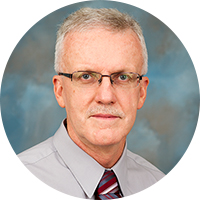 Dr. Clyde Fraisse is helping Florida’s agricultural producers use climate information to reduce risks and increase profits. His focus is on how the latest climate science can benefit agricultural producers in the southeastern United States. Dr. Fraisse often begins by explaining the difference between climate and weather. Weather refers to conditions of temperature and precipitation at a specific time in a specific location. Climate is the trend in weather over a longer period of time, such as a season or a year.
Dr. Clyde Fraisse is helping Florida’s agricultural producers use climate information to reduce risks and increase profits. His focus is on how the latest climate science can benefit agricultural producers in the southeastern United States. Dr. Fraisse often begins by explaining the difference between climate and weather. Weather refers to conditions of temperature and precipitation at a specific time in a specific location. Climate is the trend in weather over a longer period of time, such as a season or a year.
At the core of Dr. Fraisse’s climate work is the now-familiar El Niño-Southern Oscillation phenomenon (ENSO). Specifically, El Niño is the warming of a region of the equatorial Pacific Ocean off the West Coast of South America. In years when the temperature is higher than normal, an El Niño condition occurs. There are also years when the temperature is lower than normal, and this is called a La Niña condition. Then there are so-called “neutral” years when the temperature is within the normal range.
Dr. Fraisse cooperates with climate and agricultural scientists of the Southeast Climate Consortium (SECC) to transfer knowledge and increase the climate literacy of agricultural producers in the region. The SECC is a consortium of eight southeastern universities that cooperate to advance the climate sciences and develop decision support tools based on the latest climate science. These tools are accessible to the general public through the Agroclimate.org website. Dr. Fraisse often works with specific commodity groups, such as strawberry, cotton, or corn producers, to help them understand the wealth of historical information the SECC has compiled about optimum planting schedules and other aspects of growing specific crops.
Dr. Fraisse has been working with plant pathologists to understand the decision-making process of strawberry growers when they are confronted with diseases such as anthracnose and botrytis. He developed a new, web-based tool to help growers to time their fungicide applications. The web decision support system can be accessed at http://agroclimate.org/tools/strawberry/.
Dr. Dave Gustafson
Agriculture & Food Systems Institute
 Dr. Dave Gustafson is an independent scientist and author working to help food systems meet human nutrition needs in more sustainable ways. His academic training was in chemical engineering (Stanford, B.S., 1980; University of Washington, Ph.D., 1983). He worked 30 years in private industry (Shell, Rhône-Poulenc, Monsanto), and then served at the Agriculture & Food Systems Institute as founding Director of the Center for Integrated Modeling of Sustainable Agriculture and Nutrition Security (CIMSANS) through 2016. Dr. Gustafson’s early career focused on predicting agricultural impacts on water quality. He subsequently developed new modeling approaches to pollen-mediated gene flow and the population genetics of insect and weed resistance. Beginning in 2007, Dr. Gustafson began leading efforts to understand climate adaptation and mitigation imperatives in the global agri-food system. He has served on various national and international teams looking at this issue, including the Executive Secretariat of the US Government’s National Climate Assessment Development & Advisory Committee (2011-2014).
Dr. Dave Gustafson is an independent scientist and author working to help food systems meet human nutrition needs in more sustainable ways. His academic training was in chemical engineering (Stanford, B.S., 1980; University of Washington, Ph.D., 1983). He worked 30 years in private industry (Shell, Rhône-Poulenc, Monsanto), and then served at the Agriculture & Food Systems Institute as founding Director of the Center for Integrated Modeling of Sustainable Agriculture and Nutrition Security (CIMSANS) through 2016. Dr. Gustafson’s early career focused on predicting agricultural impacts on water quality. He subsequently developed new modeling approaches to pollen-mediated gene flow and the population genetics of insect and weed resistance. Beginning in 2007, Dr. Gustafson began leading efforts to understand climate adaptation and mitigation imperatives in the global agri-food system. He has served on various national and international teams looking at this issue, including the Executive Secretariat of the US Government’s National Climate Assessment Development & Advisory Committee (2011-2014).
Mr. Chad Kruger
Director of Wenatchee Fruit Research & Extension Center and Center for Sustaining Agriculture and Natural Resources, Washington State University
 Chad Kruger currently directs WSU’s Tree Fruit Research and Extension Center (TFREC) in Wenatchee and Center for Sustaining Agriculture & Natural Resources (CSANR). He received a B.A. in Philosophy and History (1997) and an Academic Certificate in Ecointensive Agriculture Technologies (1998) from Northwest College in Kirkland, Washington, and he completed an M.S. (2003) in Land Resources from the Gaylord Nelson Institute for Environmental Studies at the University of Wisconsin – Madison. He was an Au Sable Graduate Fellow at the University of Wisconsin – Madison. He joined WSU in 2004 and spent the first 11 years of his career located at TFREC in Wenatchee as part of the Center for Sustaining Agriculture & Natural Resources, and directed WSU’s Northwestern Washington Research & Extension Center (NWREC) in Mount Vernon (2015-2020) and the Puyallup Research & Extension Center (2017-2020).
Chad Kruger currently directs WSU’s Tree Fruit Research and Extension Center (TFREC) in Wenatchee and Center for Sustaining Agriculture & Natural Resources (CSANR). He received a B.A. in Philosophy and History (1997) and an Academic Certificate in Ecointensive Agriculture Technologies (1998) from Northwest College in Kirkland, Washington, and he completed an M.S. (2003) in Land Resources from the Gaylord Nelson Institute for Environmental Studies at the University of Wisconsin – Madison. He was an Au Sable Graduate Fellow at the University of Wisconsin – Madison. He joined WSU in 2004 and spent the first 11 years of his career located at TFREC in Wenatchee as part of the Center for Sustaining Agriculture & Natural Resources, and directed WSU’s Northwestern Washington Research & Extension Center (NWREC) in Mount Vernon (2015-2020) and the Puyallup Research & Extension Center (2017-2020).
Mr. Kruger served on the 2007/2008 Washington State Climate Action Team, co-chairing the Agriculture Sector Carbon Market Workgroup, the Washington Department of Natural Resources Expert Council on Climate Change, the board of the Northwest Ag Business Center, and was a Commissioner on the Douglas County Water Conservancy Board. He currently co-chairs the Sustainable Ag Committee for the Cascadia Innovation Corridor, serves on WSDA’s Dairy Nutrient Advisory Committee, the WDNR Climate Resilience Advisory Council, ex officio for the Washington Tree Fruit Research Commission, and represents WSU on the Washington Food Policy Forum. He co-chaired the Outreach, Extension, Service and Engagement Concept Team for the WSU 2021-2025 Strategic Planning process, serves on WSU’s Forward Together: Campus and Locations Operations Working Group, and is the lead author of the multi-agency Washington Soil Health Initiative. He was raised in Washington State and is blessed to be from generational farm families in both Eastern (wheat and cattle near Spokane) and Western Washington (berries in Whatcom County).
Dr. John Kruse
Principal and Co-founder, World Agricultural Economic and Environmental Services, LLC
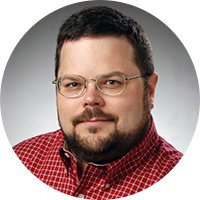 Dr. John Kruse is currently a principal and co-founder of World Agricultural Economic and Environmental Services, LLC (WAEES). John works with a team of agricultural analysis experts providing policy, technology, environmental and life cycle analysis support to a variety of agribusinesses, trade organizations, and government entities. Within WAEES, he directs the structural partial equilibrium modeling for the global agricultural sector conducting simulation analysis of a variety of domestic and international policy, technology, macroeconomic, and weather alternatives.
Dr. John Kruse is currently a principal and co-founder of World Agricultural Economic and Environmental Services, LLC (WAEES). John works with a team of agricultural analysis experts providing policy, technology, environmental and life cycle analysis support to a variety of agribusinesses, trade organizations, and government entities. Within WAEES, he directs the structural partial equilibrium modeling for the global agricultural sector conducting simulation analysis of a variety of domestic and international policy, technology, macroeconomic, and weather alternatives.
Dr. Kruse has built global econometric models for the grains, oilseeds, cotton, beef, pork, broiler, fruits, and vegetable sectors and has run a variety of policy and technology scenarios, including China, over the past 20 years. He participated in the WTO trade negotiation analysis with FAPRI both at Iowa State University and University of Missouri, with special emphasis on the implications of WTO negotiations for US agriculture. More recently, he has worked on special proprietary studies focusing on technology and China’s future import needs for grains and oilseeds. He also has experience with fruits and vegetable models for China and the rest of the world.
He has worked in the consulting sector, providing commodity market and regulatory insight to agri-business, government agencies, trade associations, executives, and researchers. While at the Food and Agricultural Policy Research Institute (FAPRI) at the University of Missouri-Columbia, he was co-program director for biofuels and transportation research. In this position, he was responsible for biofuels and grain transportation analysis, the U.S. crop sector outlook, and development of global crop models.
He has co-authored numerous journal articles. He is currently Adjunct Professor, Agricultural Economics, University of Missouri-Columbia, where he completed his PhD.
Dr. Rachel Melnick
Senior Manager – Scientific Programs, Agriculture & Food Systems Institute
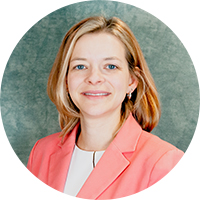 Dr. Rachel Melnick joined the Agriculture & Food Systems Institute as Senior Manager – Scientific Programs in 2019, bringing with her seven years of experience managing competitive federal grant programs. Dr. Melnick worked for the US Department of Agriculture (USDA) for nearly a decade, both as a researcher and as a program manager. Prior to joining the Agriculture & Food Systems Institute, she was the National Program Leader for Agroclimatology and Production Systems at the USDA National Institute of Food and Agriculture, where she co-led competitive interdisciplinary research and extension grant programs on climate change, sustainable agricultural systems, agricultural microbiome, integrated pest management, and joint programs with the National Science Foundation. She also managed a topic area in the USDA Small Business Innovation Research program. During her postdoctoral studies at the USDA Agricultural Research Service, Rachel studied the molecular mechanisms behind the physiological condition known as cherelle wilt of cacao and the mechanisms leading to formation of witches’ broom and frosty pods diseases.
Dr. Rachel Melnick joined the Agriculture & Food Systems Institute as Senior Manager – Scientific Programs in 2019, bringing with her seven years of experience managing competitive federal grant programs. Dr. Melnick worked for the US Department of Agriculture (USDA) for nearly a decade, both as a researcher and as a program manager. Prior to joining the Agriculture & Food Systems Institute, she was the National Program Leader for Agroclimatology and Production Systems at the USDA National Institute of Food and Agriculture, where she co-led competitive interdisciplinary research and extension grant programs on climate change, sustainable agricultural systems, agricultural microbiome, integrated pest management, and joint programs with the National Science Foundation. She also managed a topic area in the USDA Small Business Innovation Research program. During her postdoctoral studies at the USDA Agricultural Research Service, Rachel studied the molecular mechanisms behind the physiological condition known as cherelle wilt of cacao and the mechanisms leading to formation of witches’ broom and frosty pods diseases.
Dr. Melnick received her M.S. and Ph.D. in Plant Pathology from Pennsylvania State University, where she studied biological control of cacao diseases. She currently serves as editor for the journal Biological Control.
Dr. Ranjan Parajuli
Research Associate, Department of Chemical Engineering, University of Arkansas
 Dr. Ranjan Parajuli is a Research Associate at the Department of Chemical Engineering, University of Arkansas. He completed his Ph.D from the Department of Agroecology, Aarhus University, Denmark. During his Ph.D research, he applied the Life Cycle Assessment (LCA) method for assessments of potential environmental impacts of agricultural and bio-based product production systems. He is proficient in LCA modeling of different types of agricultural crops, including annuals and perennials. Environmental footprint assessment of the biomass conversions pathways, including in an integrated biorefinery, is also among his expertise in LCA modeling.
Dr. Ranjan Parajuli is a Research Associate at the Department of Chemical Engineering, University of Arkansas. He completed his Ph.D from the Department of Agroecology, Aarhus University, Denmark. During his Ph.D research, he applied the Life Cycle Assessment (LCA) method for assessments of potential environmental impacts of agricultural and bio-based product production systems. He is proficient in LCA modeling of different types of agricultural crops, including annuals and perennials. Environmental footprint assessment of the biomass conversions pathways, including in an integrated biorefinery, is also among his expertise in LCA modeling.
Dr. Parajuli holds an undergraduate degree in Agricultural Engineering from the Institute of Engineering, Tribhuvan University, Nepal. From the same institution, he acquired an M.Sc. in Renewable Energy Engineering. In a quest for more advanced learning on energy planning and management systems, he went for an MSc. in Sustainable Energy Planning and Management from Aalborg University, Denmark. In addition to LCA, Dr. Parajuli’s expertise are on sustainable natural resource management and on delivering solutions for the promotion of sustainable energy options. During this career path, he worked with different national and international organizations in different capacities and responsibilities. Some of the exciting research that he executed both at the community and policy level, back in Nepal, were, e.g., developing appropriate technologies to increase energy access to rural communities and formulating energy poverty reduction plans of the country. He was also involved in developing tools and mechanisms for assessing climate change vulnerabilities in the energy sector and thereby delineating climate change adaptive renewable energy plans.
Currently, at the Department of Chemical Engineering, University of Arkansas, Dr. Parajuli is involved in a multidisciplinary project aimed at enhancing the productivity, resilience, and sustainability of domestically produce fruits and vegetable (F&V) supply chains of the US. The project evaluates various strategies that can be applied to pursue climate adaptation and mitigation opportunities in US F&V supply chains, thereby helping the nation to maintain a nutritious, reliable, affordable, and environmentally-sound food supply. Under this project, Dr. Parajuli, with a team at the University of Arkansas, has the task of modeling agricultural supply chains during environmental climate stress and adaptation scenarios, using the LCA method.
Dr. Parajuli, as an LCA analyst, is interested in contributing to noble solutions and alternative ways of producing materials and commodities with minimum environmental damage. He believes that combined production of food, feed, fuel, and fibers from agricultural crops and residues is one of the utmost necessities for optimizing available resources and supporting a green economy.
Dr. Kirti Rajagopalan
Assistant Professor - Biological Systems Engineering, Washington State University
 Dr. Kirti Rajagopalan is part of the Land, Air, Water Resources, and Environmental Engineering emphasis area of the Department of Biological Systems Engineering. Her Agricultural, Natural, and Human Systems modeling group develops and utilizes a variety to modeling approaches to better understand and manage water and agricultural resources. The group focuses on trans-disciplinary efforts to problem solving and works closely with colleagues from a broad range of disciplines, including engineering, economics, entomology, physiology, statistics, and agronomy.
Dr. Kirti Rajagopalan is part of the Land, Air, Water Resources, and Environmental Engineering emphasis area of the Department of Biological Systems Engineering. Her Agricultural, Natural, and Human Systems modeling group develops and utilizes a variety to modeling approaches to better understand and manage water and agricultural resources. The group focuses on trans-disciplinary efforts to problem solving and works closely with colleagues from a broad range of disciplines, including engineering, economics, entomology, physiology, statistics, and agronomy.
Dr. Claudio Stöckle
Professor of Biological Systems Engineering, Washington State University
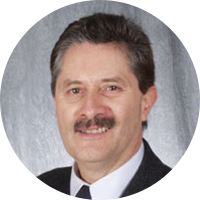 Dr. Claudio Stöckle’s research is in the Land, Air, Water Resources, and Environmental Engineering (LAWREE) research emphasis area. His focus is on the development and application of analytical tools to study, understand, and manage the interaction between soil, weather, and crops. He is particularly interested in modeling the environmental impact of agricultural production at the field and water shed levels and in further enhancement and support of the Agricultural Crop Systems Modeling Software (CropSyst) he developed.
Dr. Claudio Stöckle’s research is in the Land, Air, Water Resources, and Environmental Engineering (LAWREE) research emphasis area. His focus is on the development and application of analytical tools to study, understand, and manage the interaction between soil, weather, and crops. He is particularly interested in modeling the environmental impact of agricultural production at the field and water shed levels and in further enhancement and support of the Agricultural Crop Systems Modeling Software (CropSyst) he developed.
His research team develops and applies computer-based analytical tools to study and evaluate the economic and environmental effects of soil, climate, and man on the land.
Dr. Greg Thoma
Professor, Bates Teaching Endowed Professorship in Chemical Engineering, University of Arkansas
 Dr. Greg Thoma is currently the lead investigator for a number of life cycle initiatives in the food and agriculture sector, including studies on fluid milk, cheese, and milk delivery systems, and is project director for a 5-year, $5M USDA multi-university project focused on greenhouse gas mitigation for US swine production. Dr. Thoma also consults on other LCA work at the University of Arkansas, focusing on rice, cotton, corn, and sweet corn. Recently, he became the scientific lead for the UNFAO Partnership on the Environmental Benchmarking of Livestock Supply Chains technical advisory group for poultry, which is working to create guidance in the application of LCA for assessment of sustainable poultry and egg production.
Dr. Greg Thoma is currently the lead investigator for a number of life cycle initiatives in the food and agriculture sector, including studies on fluid milk, cheese, and milk delivery systems, and is project director for a 5-year, $5M USDA multi-university project focused on greenhouse gas mitigation for US swine production. Dr. Thoma also consults on other LCA work at the University of Arkansas, focusing on rice, cotton, corn, and sweet corn. Recently, he became the scientific lead for the UNFAO Partnership on the Environmental Benchmarking of Livestock Supply Chains technical advisory group for poultry, which is working to create guidance in the application of LCA for assessment of sustainable poultry and egg production.

